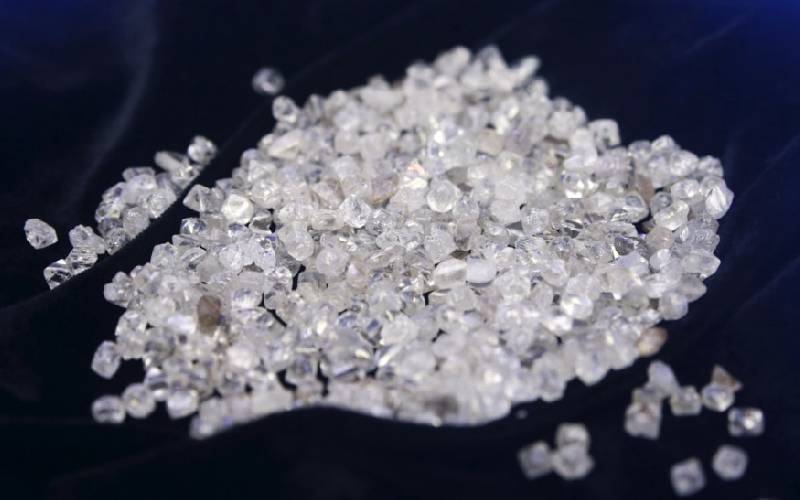By Jackson Okoth
Kenya: The Ministry of Mining has termed a recent move by cement manufacturers to raise the prices as unacceptable and a betrayal of resolutions made at an earlier meeting between the Government and the industry.
“A decision to impose a levy on finished cement products was reached after a long consultative meeting in my office, at Sh140 per tonne or Sh7 per 50kg bag. Surprisingly, manufacturers have raised their prices by more than Sh20 per bag,” said Mining Cabinet Secretary Najib Balala.
Price hikes
Interestingly, a section of real estate firms that consume huge volumes of cement appear unaffected by the recent price hikes.
“While these recent increase does not warrant any undue concerns, the Government should come up with incentives to encourage production such as duty free importation of clinker or fuel subsidies,” said Daniel Ojijo, Executive-Chairman, Mentor Holdings. Kenya’s cement industry is still heavily dependent on clinker imports, most from China.
The entry of more players into the cement manufacturing business, is expected to raise production to 11.1 million tonnes by 2017, industry estimates show.
Availability of quality limestone reserves in Kenya provides cement companies with an important competitive advantage, as most of the regional markets are lacking sufficient raw materials. However, environmental concerns and the resistance of local residents continue slowing down the process.
“Kenya will remain in a clinker deficit position in the coming years as demand far outstrips installed capacity,” said Kepha Tande, Managing Director-East African Portland Cement Company Limited.
He is quoted as saying in the company’s annual report and Financial Statements, 2013.
Market demand
Figures indicate that Kenya’s Cement industry remains competitive with an installed capacity of 7 million tonnes. This surpasses the annual market demand of 4 million metric tonnes. “We expect that aggregate demand will match production capacity in the coming years and provide stability in cement prices,” explained Tande.
At present, Cement manufacturers face a challenging business environment made up of increased competition from new players, high energy and fuel costs as well as influx of cheap cement imported from energy-subsidised economies.
Latest data from Kenya National Bureau of Statistics (KNBS) indicates that the quantity of cement produced went up from 414,807 metric tonnes in September 2013 to 425,058 metric tonnes in October 2013. This is against consumption of cement, which increased from 342,537 metric tonnes, recorded in September 2013 to 344,614 metric tonnes in October 2013.
While the entry of more players into the cement industry has pushed down prices, this latest levy is likely to reverse the trend.
Stay informed. Subscribe to our newsletter
Nigerian tycoon, Aliko Dangote is reported to be angling to set up a cement plant in Kenya, a move that is expected to ignite a vicious battle in the sector.
Manufacturers are worried about Kenya remaining one of the most uncompetitive investment destinations due to the high cost of doing business. Industry reports show that entry of more players in the cement industry is likely to provoke intense price competition. Cheap imports particularly from energy subsidised economies, will also be a source of price pressure in the market.
Lapsset projects
Regionally, the earmarked infrastructure projects such as the Lapsset project linking South Sudan to the Lamu port and the recent oil and mineral explorations in Kenya and Uganda, are expected to drive up demand. According to the Economic Survey 2013, building and construction sector recorded a growth of 4.8 per cent in 2012 compared to growth of 4.3 per cent in 2011.
Cement consumption rose by 1.7 per cent from 3,870.9 thousand tonnes in 2011 to 3,937.3 thousand tonnes in 2012. Total value of new private and public buildings completed went up by 9.6 per cent from Sh46.4 billion in 2011 to Sh50.8 billion in 2012
 The Standard Group Plc is a
multi-media organization with investments in media platforms spanning newspaper
print operations, television, radio broadcasting, digital and online services. The
Standard Group is recognized as a leading multi-media house in Kenya with a key
influence in matters of national and international interest.
The Standard Group Plc is a
multi-media organization with investments in media platforms spanning newspaper
print operations, television, radio broadcasting, digital and online services. The
Standard Group is recognized as a leading multi-media house in Kenya with a key
influence in matters of national and international interest.
 The Standard Group Plc is a
multi-media organization with investments in media platforms spanning newspaper
print operations, television, radio broadcasting, digital and online services. The
Standard Group is recognized as a leading multi-media house in Kenya with a key
influence in matters of national and international interest.
The Standard Group Plc is a
multi-media organization with investments in media platforms spanning newspaper
print operations, television, radio broadcasting, digital and online services. The
Standard Group is recognized as a leading multi-media house in Kenya with a key
influence in matters of national and international interest.








